First Aid for Overdose

Overdoses, either accidental or deliberate, can happen to anyone at any time. Seeing someone in the grips of an overdose can be a scary and confronting experience, not knowing what they’ve taken, why and how much can cause panic. When someone takes the wrong substance or the wrong combination of substances, knowingly or unknowingly, it can lead to a number of dramatic and harmful effects on the body. It may even be from a medication prescribed by a doctor. However, the reason for the overdose is not the First Aiders concern; their focus should be on what to do to get that person out of harm’s way.
Many overdoses can be mild or moderate in effect, however, others can be fatal. Sadly, Australia's Annual Overdose Report reveals that more than 2,000 Australians lost their lives to overdose in 2021. Many of these deaths are preventable. Recognising that substance abuse is happening and how to apply the right First Aid for overdose treatment is critical if this number is to be reduced.
What is an Overdose?
An overdose means having more of a drug (or combination of drugs) than your body can cope with. A drug is anything other than food or water that causes an effect on the functions of the body, either physically or psychologically. It can include anything from caffeine and tobacco to substances like alcohol and heroin.
There are a number of signs and symptoms that show someone has overdosed, and these differ with the type of drug used. All drugs can cause an overdose, including medication prescribed by a doctor. It is important to know the right amount and the right time to take your medication. It is also vital to know what drugs should not be mixed and to seek help if you feel you are not in control of your drug use.
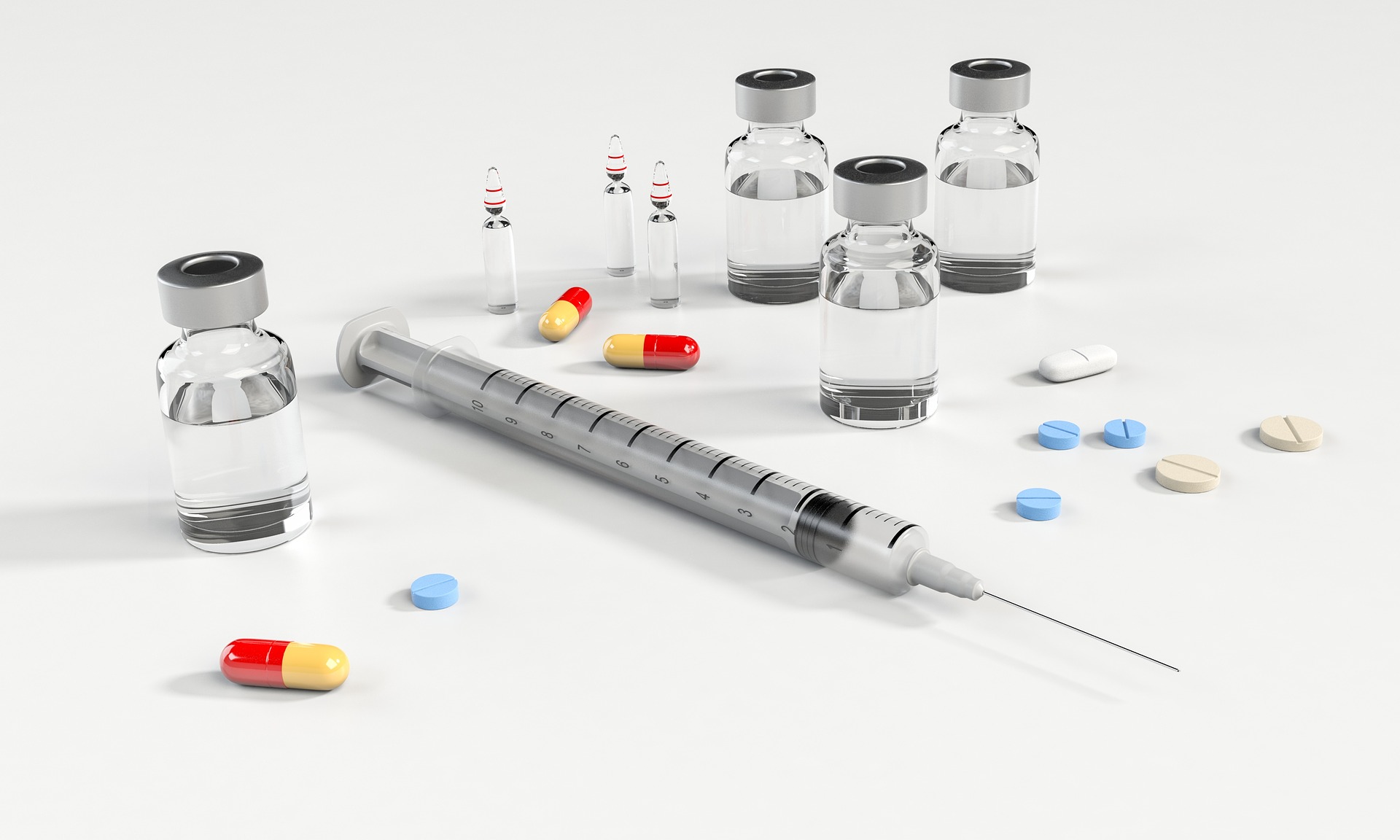
Substances That Can Cause an Overdose
Most substances can be overdosed on if the quantity is sufficient, or if the individual is taking a new combination or dosage alongside other drugs. This can include legal or illegal substances, which might be swallowed, injected or inhaled. However, some substances are more common than others when it comes to fatalities, such as:
- Opioids: heroin, methadone, codeine, morphine
- Depressants: alcohol, barbiturates, benzodiazepines
- Antidepressants
- Antipsychotics
- Cannabinoids: marijuana
- Non-Opioid Analgesics: paracetamol
- Stimulants: amphetamines (‘speed’, ‘ice’), cocaine, ecstasy
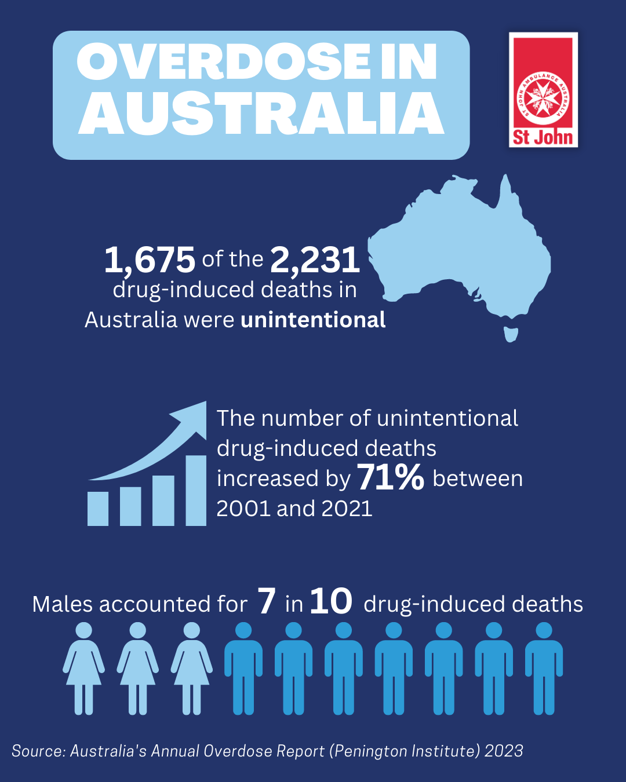
Overdose Symptoms
The signs and symptoms can vary depending on the substance taken, amount taken and the individual’s own health situation at the time. We’ve listed some common symptoms below. The First Aider should take action if any of these are observed.

It is not necessary for someone to have all of these symptoms for them to be overdosing. Just one or two could mean they are in trouble and need immediate medical help.
First Aid for Overdose Steps
1. Follow DRSABCD:
- Be aware of potential Danger issues with any possibly contaminated needles nearby
- Their eyes may be open but they may not be responding when you check for Response
- There may be vomit in the Airway to clear out
2. Call 000
3. Be calm, reassuring, and act professionally
4. Seek information on:
- History – find out how much was taken, when and what substance
- Observations – monitor their vital signs including conscious state
5. Check for other possible injuries such as fractures
6. Attempt to keep vomit or a sample of it to send to hospital with the casualty
7. Keep substances or containers for identification to send to hospital with casualty
They may also get quite hot, depending on the substance taken. Remove clothing and treat for heat exhaustion to help cool their body.
It’s OK to Call for Help
Some might worry about legal ramifications when it comes to illicit substances and often delay seeking help as a result. The emergency services are more concerned with preservation of life than prosecuting the individual patient. Do not hesitate to call 000 for help as soon as you become aware of a suspected overdose - you could save a life.
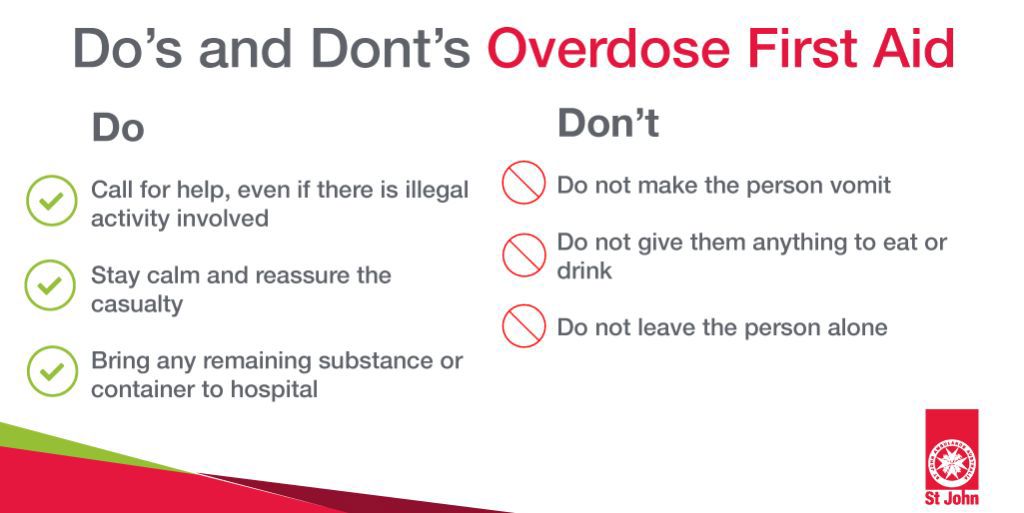
Whether accidental or deliberate, legal or illicit, a drug overdose is a serious situation for a First Aider to encounter. Not to mention, it is an increasing problem, with rates of drug overdoses coming up to their highest in many years. It could be at home, work, a party or in public – the individual may or may not be an addict.
Medical intervention is usually required to reverse the effects of the drug and reduce damage to critical organs like the heart, lungs, brain and liver, with time being a critical factor in survival. The sooner they can access help, the less likely permanent damage or death will be. Here is where an observant and caring First Aider is incredibly important in giving the individual the best chance possible for survival.
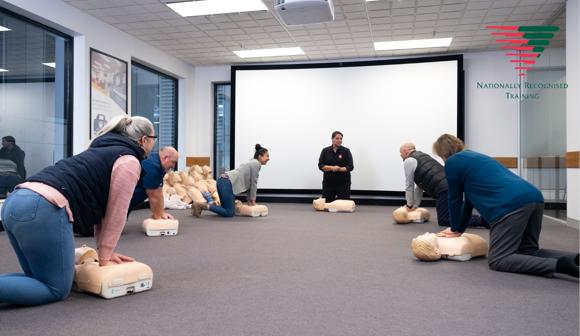
HLTAID011 PROVIDE FIRST AID
Learn how to manage a range of common first aid scenarios.
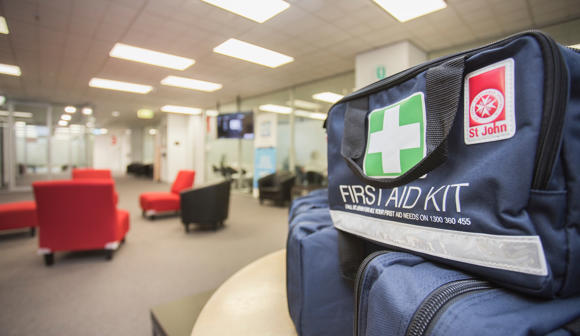
DO YOU HAVE THE RIGHT FIRST AID KIT FOR YOUR HOME, SCHOOL OR WORKPLACE?
St John has a range of First Aid products to suit any situation.
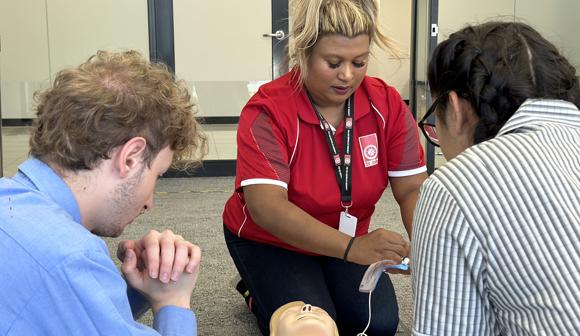
PARTY READY
A new program for secondary school students to learn how to party safely.
